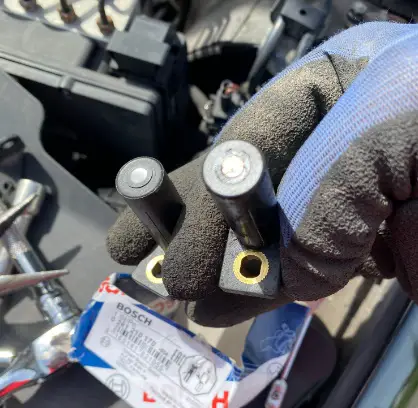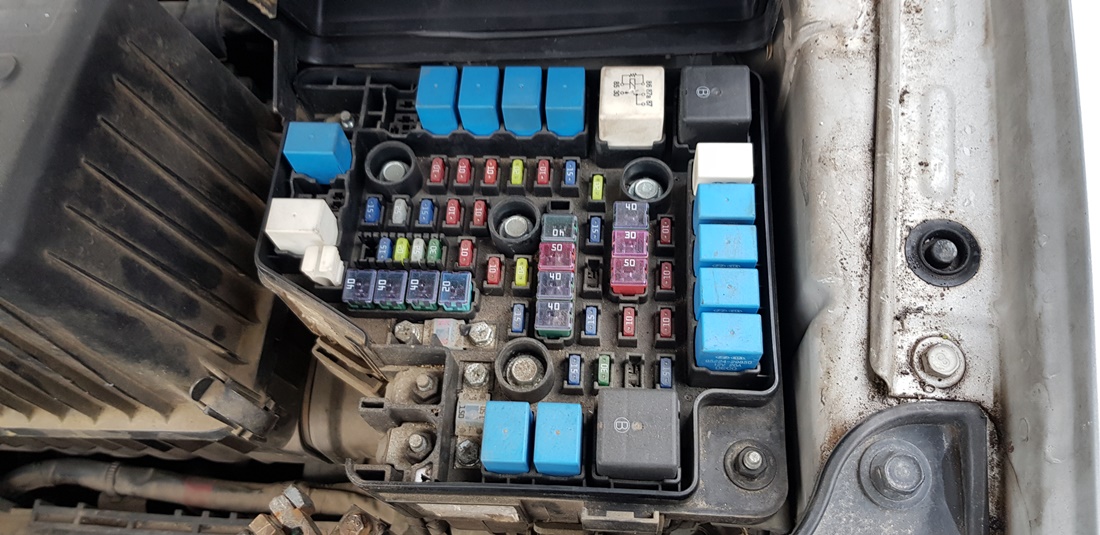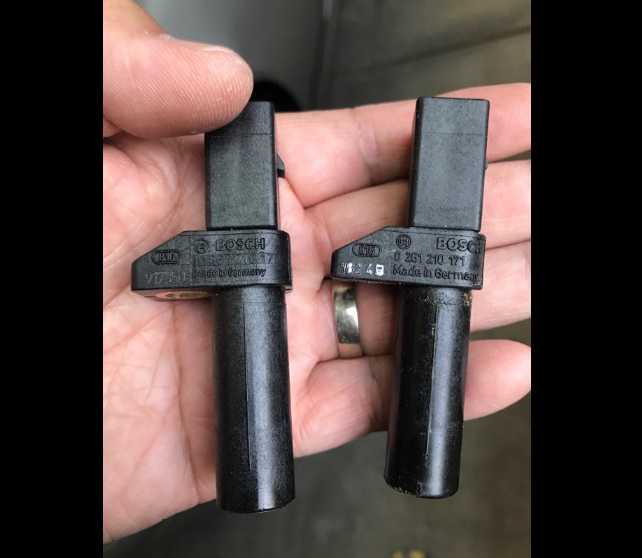As a vehicle owner, you may have heard about cooling system additives and how they can improve the performance of your engine’s cooling system.
However, you may also be wondering if these additives actually work or if they are just another unnecessary expense.
In this article, we will explore the effectiveness of cooling system additives and examine whether they are essential for every vehicle.
- Key Takeaways:
- Do Cooling System Additives Work?
- Benefits of Cooling System Additives
- Effectiveness of Cooling System Additives
- Improving Performance with Coolant Additives
- The Necessity of Cooling System Additives
- Preventing Overheating: Can Cooling System Additives Help?
- Choosing the Best Cooling System Additives
- Reviews of Cooling System Additives
- Debunking Common Myths about Cooling System Additives
- FAQ
- Q: Do cooling system additives work?
- Q: What are cooling system additives?
- Q: What are the benefits of using cooling system additives?
- Q: Do coolant additives really improve performance?
- Q: Are cooling system additives necessary for every vehicle?
- Q: Can cooling system additives help prevent overheating?
- Q: How can I choose the best cooling system additives for my vehicle?
- Q: What do reviews say about cooling system additives?
- Q: What are some common myths about cooling system additives?
- Q: Do cooling system additives really work?
- Conclusion and final thoughts
Key Takeaways:
- Cooling system additives do work, as they enhance heat transfer, reduce engine temperatures, and prevent corrosion within the cooling system.
- Factors such as the age of the vehicle and type of coolant used can affect whether additives are necessary or optional.
- Choosing the right cooling system additives can enhance the cooling system’s performance and prevent overheating.
- Reviews and testimonials from experts and users can provide valuable insights into the effectiveness and satisfaction levels associated with specific products.
Do Cooling System Additives Work?

Yes, cooling system additives do work and can significantly improve the performance and longevity of a vehicle’s cooling system.
Cooling system additives serve multiple purposes. They are designed to enhance the heat transfer capabilities of the coolant, prevent rust and corrosion within the cooling system, and reduce cavitation.
By reducing the surface tension of the coolant, these additives allow it to absorb and dissipate heat more effectively, which can help prevent the engine from overheating.
The protective barrier they form on the metal components of the cooling system helps prevent these parts from reacting with the oxygen in the coolant, thereby preventing rust and corrosion.
Benefits of Cooling System Additives
Cooling system additives provide several benefits, including enhancing the performance of the coolant, preventing rust and corrosion, and extending the life of the cooling system.
Enhancing the Performance of Coolant
Cooling system additives can enhance the performance of the coolant by improving its heat transfer capabilities. They work by reducing the surface tension of the coolant, allowing it to more effectively absorb and dissipate heat from the engine. This can help keep the engine cooler and prevent overheating.
Preventing Rust and Corrosion
One of the key benefits of cooling system additives is their ability to prevent rust and corrosion within the cooling system. They do this by creating a protective barrier on the metal components of the system. This barrier helps prevent the metal from reacting with the oxygen in the coolant, which can lead to rust and corrosion.
Extending Life of Cooling System
By enhancing the performance of the coolant and preventing rust and corrosion, cooling system additives can extend the life of the cooling system. A well-maintained cooling system can function more efficiently, reducing the risk of overheating and other engine problems. This can save you money on costly repairs and replacements in the long run.
Reducing Cavitation
Some cooling system additives also have anti-cavitation properties. Cavitation occurs when vapor bubbles form in the coolant, which can cause damage to the water pump and other parts of the cooling system. Anti-cavitation additives help prevent these bubbles from forming, reducing the risk of cavitation damage says AMSOIL.
Effectiveness of Cooling System Additives
While the benefits of cooling system additives are clear, the effectiveness of these substances can vary depending on several factors, including the type of additive used, the condition of the cooling system, and the operating conditions of the vehicle.
Some cooling system additives have been shown to provide significant improvements to the efficiency and performance of the cooling system. For example, some additives have been found to improve heat transfer by up to 25%, while others have been shown to reduce corrosion by as much as 99%. However, the effectiveness of these additives can depend on the specific circumstances of each vehicle.
It is also important to note that cooling system additives should not be used as a replacement for proper maintenance of the cooling system. Regular flushing and replacement of coolant are still necessary to ensure the health and longevity of the cooling system.
Expert tip: When selecting a cooling system additive, be sure to choose one that is compatible with your vehicle’s coolant type. Some additives are only designed to work with specific coolant formulations.
Improving Performance with Coolant Additives
Cooling system additives are designed to enhance the performance of a vehicle’s cooling system in several ways. One of the main benefits of using these additives is their ability to improve heat transfer within the system.
When added to the coolant, these additives can reduce the surface tension of the fluid, allowing it to flow more efficiently through the radiator and other components. This improves the heat transfer process, which helps to keep the engine at an optimal operating temperature.
In addition to improving heat transfer, coolant additives can also help to prevent corrosion within the cooling system.
The coolant in a vehicle’s cooling system consists of a mixture of water and antifreeze, which can be a breeding ground for rust and other forms of corrosion. By adding specialized inhibitors and other chemicals to the coolant, additives can help to prevent this corrosion from occurring.
Another way in which cooling system additives can improve system performance is by enhancing overall efficiency. By reducing friction and wear between moving parts, these additives can help to extend the life of the cooling system components, including the water pump, hoses, and radiator.
Examples of Coolant Additives That Improve Performance
There are many different types of cooling system additives available on the market, each with its own unique set of benefits and features. Some of the most popular additives for improving performance include:
| Additive | Benefits |
|---|---|
| Water Wetter | Improves heat transfer, reduces surface tension, and provides corrosion protection. |
| Red Line Water Wetter | Similar benefits to regular Water Wetter, with added rust and corrosion inhibitors. |
| Bars Leaks HDC Radiator Stop Leak Tablet | Seals leaks and cracks in the radiator and other components, preventing coolant loss and overheating. |
It is important to note that the effectiveness of these additives can vary depending on a range of factors, including the type of coolant used, the age and condition of the cooling system components, and the operating conditions of the vehicle.
It is always best to consult with a trusted mechanic or cooling system expert before adding any new additives to a vehicle’s cooling system.
The Necessity of Cooling System Additives
Cooling system additives are necessary as they enhance the efficiency of heat transfer, prevent scale deposits, and help maintain the cleanliness of your engine.
Cooling system additives play a pivotal role in maintaining the health and performance of a vehicle’s engine.
They work by improving heat transfer through the radiator, which helps keep the engine at an optimal temperature and prevents overheating. This is particularly beneficial during extreme weather conditions or when the vehicle is under heavy load.
Additionally, certain types of cooling system additives help prevent the formation of scale deposits in the radiator.
These deposits can impede coolant flow and reduce the efficiency of the cooling system, leading to increased engine temperatures and potential damage. By preventing scale formation, these additives ensure optimum coolant flow and help maintain the performance of the radiator.
Moreover, some cooling system additives can also contribute to the cleanliness of the engine. They do this by suspending contaminants in the coolant fluid, which can then be flushed out during service. This helps keep the engine clean and can extend its lifespan.
Preventing Overheating: Can Cooling System Additives Help?
Yes, cooling system additives can help prevent overheating by enhancing the heat transfer capabilities of the coolant and reducing engine temperatures.
These additives work by reducing the surface tension of the coolant, allowing it to absorb and dissipate heat more effectively.
This can help keep the engine cooler, preventing overheating even under demanding conditions.
Additionally, some cooling system additives also contain anti-cavitation properties that prevent the formation of vapor bubbles in the coolant, which can lead to overheating and damage to the water pump and other parts of the cooling system.
Choosing the Best Cooling System Additives
Choosing the right cooling system additives can be a daunting task, but it is essential if you want to maximize the efficiency of your vehicle’s cooling system. Here are some tips to help you select the best cooling system additives for your needs:
- Check your vehicle’s manufacturer recommendations: Before purchasing any additives, it’s important to check your vehicle’s owner’s manual to see if the manufacturer recommends any specific products. Using the recommended products can help ensure compatibility and optimal performance.
- Consider the type of coolant used: Different types of coolants require different types of additives. For example, some additives are designed specifically for use with ethylene glycol-based coolants, while others are formulated for use with propylene glycol-based coolants. Make sure to choose an additive that is compatible with your coolant type.
- Read user reviews: User reviews can provide valuable insights into the effectiveness and satisfaction levels associated with different cooling system additives. Look for products with high ratings and positive reviews from users with similar types of vehicles and cooling systems as yours.
- Choose additives with multiple benefits: Some cooling system additives are designed to provide multiple benefits, such as improving heat transfer, preventing corrosion, and reducing foam formation. These multi-purpose additives can offer a convenient and cost-effective solution.
- Consider the operating conditions: If you live in a region with extreme temperatures, high humidity, or other challenging conditions, you may need additives that are specifically formulated for these conditions. Make sure to read the product labels and choose additives that are suitable for your operating environment.
By following these tips, you can choose the best cooling system additives for your vehicle and help ensure optimal cooling system performance.
Reviews of Cooling System Additives
When it comes to selecting the right cooling system additives for your vehicle, it can be helpful to consult reviews and testimonials from other users.
Here is a compilation of feedback from various sources regarding different cooling system additives:
| Additive | Expert Reviews | User Reviews |
|---|---|---|
| Red Line Water Wetter | “One of the most popular and effective cooling system additives available” | “Greatly improved heat dissipation in my car”“Noticeable difference in engine temperature” |
| Prestone Super Radiator Cleaner | “Excellent for removing debris and preventing rust and corrosion” | “Cleaned out my radiator and improved cooling performance”“Easy to use and effective” |
| Bar’s Leaks Liquid Aluminum | “Provides a temporary seal for small leaks” | “Saved me a lot of money on repairs”“Fixed my radiator leak and lasted for months” |
It’s important to note that individual experiences can vary depending on a variety of factors, such as the specific vehicle make and model, operating conditions, and compatibility with other products.
However, these reviews can provide a starting point for those looking to research and compare different cooling system additives.
Debunking Common Myths about Cooling System Additives
Despite their popularity and widespread use, cooling system additives are still subject to several myths and misconceptions. In this section, we will separate fact from fiction and debunk some of the most common myths about these additives.
Myth #1: All Cooling System Additives are the Same
False. There is a wide variety of cooling system additives available on the market, and they are not all the same. Different products may have varying concentrations of active ingredients or be designed for specific types of coolants or engines. It is essential to carefully read the label and select an additive that is suitable for your particular vehicle and needs.
Myth #2: Adding More Additives Will Increase Their Effectiveness
False. Using more than the recommended amount of additives can actually harm your engine and cooling system. Overdosing can result in increased corrosion, reduced heat transfer efficiency, and even clogged cooling channels. Always follow the manufacturer’s recommended dosage and do not exceed it.
Myth #3: Cooling System Additives Can Fix Leaks
False. Unfortunately, no cooling system additive can repair leaks or cracks in your engine or cooling system. While some products claim to have sealing properties, they are only effective in preventing small leaks from getting worse. If you notice any signs of leakage, it is best to have your vehicle inspected by a professional mechanic.
Myth #4: You Don’t Need to Change Your Coolant if You Use Additives
False. While cooling system additives can enhance the performance and lifespan of your coolant, they do not eliminate the need for regular coolant changes. Over time, coolant can become contaminated with particles, rust, and debris that can reduce its effectiveness and cause corrosion. It is essential to follow the manufacturer’s recommended coolant change intervals and use additives as a supplement, not a replacement.
Myth #5: Cooling System Additives are Harmful to the Environment
False. Cooling system additives are generally safe and non-hazardous when used correctly and disposed of properly. Most products are formulated with biodegradable and eco-friendly ingredients and do not pose a significant risk to the environment or wildlife. However, it is crucial to follow the product label’s disposal instructions and avoid pouring additives into drains or natural water sources.
FAQ
Q: Do cooling system additives work?
A: Cooling system additives can be effective in improving the performance and longevity of a vehicle’s cooling system. They are designed to enhance heat transfer, prevent corrosion, and optimize overall system efficiency.
Q: What are cooling system additives?
A: Cooling system additives are chemical compounds that are added to a vehicle’s coolant to improve its performance and protect the cooling system from damage. They typically contain ingredients that enhance heat transfer, prevent corrosion, and inhibit the formation of deposits.
Q: What are the benefits of using cooling system additives?
A: Using cooling system additives can provide several benefits, including improved heat dissipation, reduced risk of corrosion, enhanced system efficiency, and prolonged coolant life. They can also help prevent overheating and reduce the likelihood of costly cooling system repairs.
Q: Do coolant additives really improve performance?
A: Yes, coolant additives can improve the performance of a vehicle’s cooling system. They can enhance heat transfer, prevent corrosion, and optimize overall system efficiency, leading to better cooling performance and increased engine protection.
Q: Are cooling system additives necessary for every vehicle?
A: The necessity of cooling system additives depends on various factors, such as the age of the vehicle, type of coolant used, and operating conditions. While additives can provide benefits, they may not be essential for every vehicle. It is recommended to consult the vehicle’s manufacturer guidelines and consider the specific needs of the cooling system.
Q: Can cooling system additives help prevent overheating?
A: Yes, cooling system additives can help prevent engine overheating. They can enhance the coolant’s heat dissipation properties, improve temperature regulation, and reduce the risk of system failures that can lead to overheating. However, it is important to address any underlying issues causing the overheating and ensure proper maintenance of the cooling system.
Q: How can I choose the best cooling system additives for my vehicle?
A: When choosing cooling system additives, consider factors such as compatibility with the coolant, manufacturer recommendations, and user reviews. It is important to select additives that are suitable for your specific vehicle and meet the requirements of your cooling system.
Q: What do reviews say about cooling system additives?
A: Reviews of cooling system additives vary depending on the specific product and user experiences. Some users report positive results, such as improved cooling performance and reduced system issues, while others may have mixed experiences. It is advisable to read multiple reviews and consider expert opinions to make an informed decision.
Q: What are some common myths about cooling system additives?
A: There are several common myths surrounding cooling system additives, such as the belief that they can fix existing system problems or that all additives are the same. In reality, additives are designed to enhance performance, not repair severe issues, and different additives can have varying compositions and effects.
Q: Do cooling system additives really work?
A: After considering the evidence and arguments presented in this article, it can be concluded that cooling system additives can be effective in improving the performance and longevity of a vehicle’s cooling system. However, their effectiveness may vary depending on various factors, and it is important to choose the right product for your specific needs.
Conclusion and final thoughts
After exploring the science behind cooling system additives and reviewing user experiences, we can come to a clear conclusion about their effectiveness.
The evidence suggests that they can be beneficial for certain vehicles and systems. When used correctly and in the right circumstances, they can enhance heat transfer, prevent corrosion, and improve overall system efficiency.
However, it is essential to choose the right additives for your specific vehicle and cooling system requirements.




